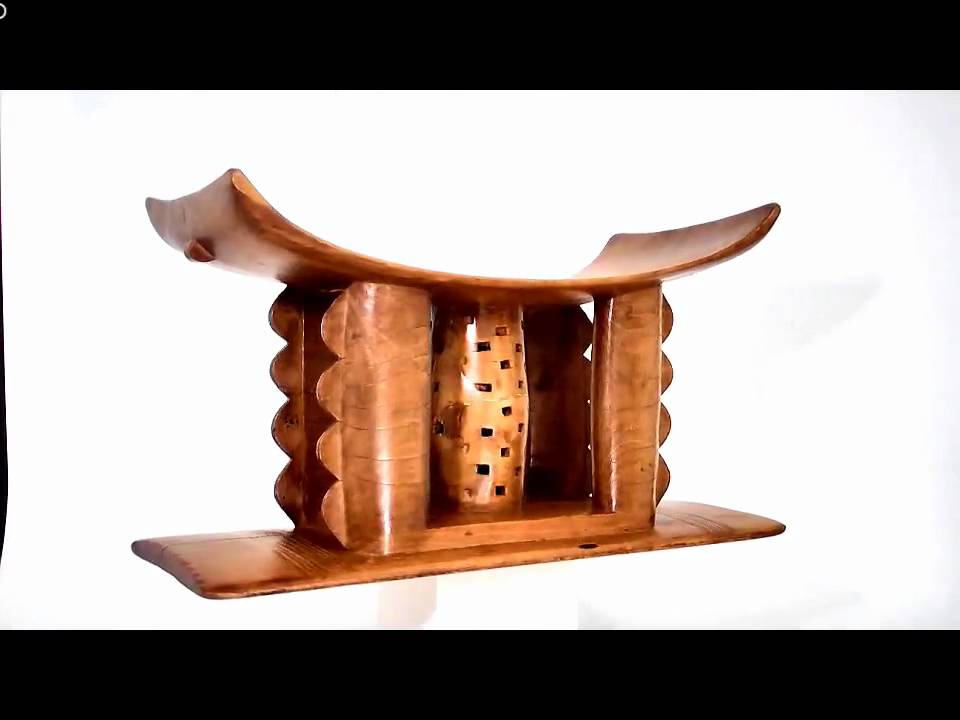Every Asante has a personal, utilitarian stool; there are hundreds of patterns expressing not only the owner’s gender and social status, but also political orientation. Successful component state leaders bequeath their personal stools to the state as part of its regalia passed down to each new ruler, validating his right to his position. New leaders augment the collection. During his life a ruler may have many personal stools whose support design and decoration express his status and concerns; if he is successful, one of them will be blackened with soot and egg, laid on its side to avoid contamination by hostile spirits and placed in the stool house on its own throne as a shrine and means of access to the spirit of its former owner after his death.
source

